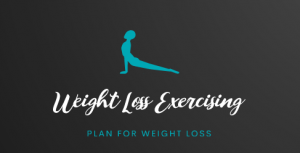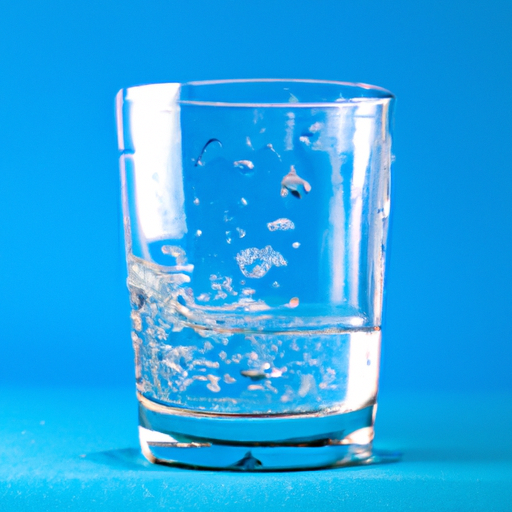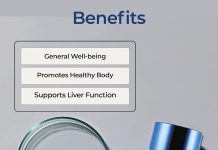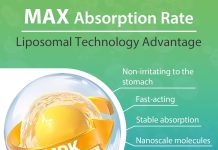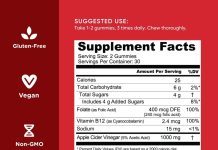We all know that staying hydrated is essential for our overall health, but did you know that drinking water can also aid in your weight loss journey? In this article, we will explore the question that many of us have asked ourselves: how much water should I drink per day to lose weight? We will uncover the science behind water consumption for weight loss, debunk common myths, and provide practical tips to help you stay hydrated and on track to achieving your weight loss goals. So grab a glass of water and let’s dive in!
Review contents
Importance of Water for Weight Loss
Water as a calorie-free beverage
When it comes to weight loss, it’s important to be mindful of what we consume. One of the best choices we can make is to opt for water as our go-to beverage. Unlike sugary drinks or even diet sodas, water has zero calories. By choosing water instead of calorie-laden beverages, we can easily cut down on our overall calorie intake. This is a simple and effective strategy for weight loss.
Effects of dehydration on weight loss
Dehydration can have a significant impact on our weight loss journey. When our bodies lack adequate water, metabolic functions can be affected. This includes digestion and the breakdown of food, which is crucial for weight loss. Moreover, dehydration can lead to water retention and bloating, creating the illusion of weight gain. By staying properly hydrated, we can ensure that our bodies are functioning optimally and supporting our weight loss efforts.
Water as an appetite suppressant
Sometimes, we mistake thirst for hunger, leading us to consume unnecessary calories. By staying hydrated, we can help curb our appetite and prevent overeating. Drinking water before meals can make us feel fuller, which can lead to consuming fewer calories during the meal. Incorporating water into our weight loss routine can be a helpful tool in managing our overall calorie intake and portion control.
Factors that Influence Water Intake
Body weight and size
Our body weight and size play a crucial role in determining our daily water intake needs. Generally, larger individuals require more water to stay hydrated compared to those who are smaller in stature. Additionally, individuals who are overweight or obese may have higher water needs due to increased metabolic demands.
Activity level and intensity
Engaging in physical activity, whether it’s a brisk walk or an intense workout session, increases our body’s water needs. We lose water through sweat during exercise, and it’s important to replenish those fluids to maintain hydration. The more physically active we are, the more we should focus on adequate water intake to support our weight loss goals.
Climate and temperature
The climate we live in or the temperature of our environment affects our body’s water requirements. In hot and humid conditions, we tend to sweat more, leading to increased fluid loss. It’s essential to adjust our water intake accordingly to prevent dehydration and support our weight loss efforts.
Dietary habits
The types of foods we consume can also influence our water intake needs. Diets that are high in fiber, such as those rich in fruits, vegetables, and whole grains, require more water for proper digestion. Additionally, diets that are high in sodium can contribute to water retention, necessitating an increased water intake to balance the sodium levels in our bodies.
Recommended Water Intake for Weight Loss
General guidelines
While individual water needs may vary, there are some general guidelines we can follow to ensure we stay adequately hydrated for weight loss. The Institute of Medicine recommends a daily water intake of about 3.7 liters (or 13 cups) for men and 2.7 liters (or 9 cups) for women. This includes all sources of water, including beverages and water-rich foods.
Water needs based on body weight
A more precise way to estimate our water needs is to consider our body weight. As a general rule of thumb, we should aim to consume approximately 30-35 milliliters of water per kilogram of body weight. For example, a person weighing 70 kilograms (154 pounds) should aim for about 2.1-2.4 liters (or 9-10 cups) of water per day.
Water needs during exercise
During exercise, our water needs increase to compensate for fluid loss through sweat. The American Council on Exercise recommends drinking 17-20 ounces (about 500-600 milliliters) of water two to three hours before exercise and an additional 7-10 ounces (about 200-300 milliliters) every 10-20 minutes during exercise. After exercise, it’s crucial to replenish any lost fluids by hydrating with water.
Benefits of Drinking Sufficient Water
Promotes thermogenesis
Drinking sufficient water can promote thermogenesis, the process by which our bodies produce heat. This can help increase our metabolism and calorie expenditure, ultimately supporting our weight loss goals. By staying hydrated, we can optimize our body’s ability to burn calories and maintain a healthy weight.
Enhances metabolism
Proper hydration is essential for maintaining a healthy metabolism. When we are dehydrated, our metabolic rate can slow down, making it harder to lose weight. Drinking enough water can keep our metabolism functioning efficiently, allowing us to more effectively burn calories and shed excess pounds.
Aids digestion and nutrient absorption
Water plays a vital role in the digestion and absorption of nutrients from the foods we eat. It helps break down food particles, allowing our bodies to extract essential nutrients. Insufficient water intake can lead to digestive issues such as constipation, making it harder to achieve weight loss goals. By staying hydrated, we can promote healthy digestion and optimize nutrient absorption.
Reduces calorie intake
Water can be a powerful tool in reducing calorie intake. By drinking water instead of high-calorie beverages or snacks, we can cut down on our overall calorie consumption. Additionally, staying hydrated can help prevent mindless snacking, as thirst is often mistaken for hunger. By prioritizing water intake, we can make smarter choices and support our weight loss efforts.
Supports detoxification
Adequate water intake is crucial for supporting our body’s natural detoxification processes. Water helps flush out toxins and waste products, promoting healthy kidney and liver function. When our bodies are properly hydrated, these organs can efficiently eliminate toxins, which in turn can support weight loss. By drinking enough water, we can optimize our body’s ability to detoxify and achieve our weight loss goals.
Timing and Frequency of Water Consumption
Drinking water before meals
Drinking water before meals can help us feel fuller and prevent overeating. This is particularly beneficial if we struggle with portion control. By having a glass of water before sitting down to eat, we can reduce our calorie intake during the meal and support our weight loss efforts.
Sipping water throughout the day
Rather than trying to drink a large amount of water all at once, it’s more beneficial to sip water throughout the day. This ensures that our bodies are consistently hydrated and can maximize the benefits of water consumption. Having a reusable water bottle on hand can help us stay hydrated and make sipping water more convenient.
Hydrating during exercise
During exercise, it’s important to replenish fluids lost through sweat. Sipping water during physical activity can help maintain hydration levels and optimize performance. Sports drinks may also be beneficial during intense or prolonged exercise, as they provide electrolytes that are lost through sweat. However, it’s important to be mindful of their calorie content if weight loss is a goal.
Water intake at night
Maintaining adequate hydration even during nighttime is important for overall health. While it’s common to avoid drinking water close to bedtime to prevent disruptions to sleep, taking small sips of water may be beneficial if we wake up feeling thirsty. Keeping a glass of water near the bed can help quench our thirst without causing frequent bathroom visits.
Other Beverage Considerations
Caloric beverages to avoid
When trying to lose weight, it’s important to limit or avoid beverages that are high in calories. Sugary drinks such as soda, juice, energy drinks, or sweetened coffee and tea can contribute to weight gain. These beverages often provide little to no nutritional value and can quickly add up in terms of calories. Choosing water instead is a calorie-free and healthier alternative.
Role of low-calorie and zero-calorie beverages
Low-calorie and zero-calorie beverages can be an option for those who prefer flavored drinks without the added calories. However, it’s essential to read labels and be mindful of artificial sweeteners or additives that some of these beverages may contain. While they may help reduce calorie consumption, they should be consumed in moderation as part of an overall balanced and healthy diet.
Effects of alcohol on weight loss
Alcohol can impede weight loss progress due to its high calorie content and effects on metabolism. It provides empty calories and can increase appetite, leading to overeating. Moreover, alcohol can disrupt sleep and hinder recovery from exercise, which can impact weight loss efforts. Limiting alcohol consumption or opting for lower-calorie options, such as light beer or spirits mixed with low-calorie mixers, can be helpful for weight management.
Tips to Increase Water Intake
Carry a water bottle
Having a reusable water bottle with us throughout the day serves as a visual reminder to drink water. By having it readily available, we are more likely to sip water regularly and meet our hydration goals. Choose a bottle that is convenient to carry and use, helping us stay hydrated wherever we go.
Add flavor to water
For those who struggle with plain water, adding a dash of flavor can make drinking water more enjoyable. Infusing water with fruits, such as lemon, lime, or berries, adds a subtle flavor without the added calories or artificial sweeteners found in flavored drinks. Herbal teas or naturally flavored sparkling water can also provide a refreshing alternative to plain water.
Set reminders
In our busy lives, it’s easy to forget to drink water regularly. Setting reminders on our phones or using apps specifically designed to track water intake can help us stay on top of our hydration goals. These reminders can prompt us to take a sip of water and make it a habit to stay hydrated throughout the day.
Consume water-rich foods
Incorporating water-rich foods into our diet can also contribute to our overall hydration. Fruits and vegetables with high water content, such as watermelon, cucumbers, or oranges, not only provide essential nutrients but also help hydrate our bodies. Including these foods in our meals and snacks can supplement our water intake and support weight loss efforts.
Drink herbal teas
Herbal teas can be a refreshing and hydrating alternative to plain water. Not only do they provide hydration, but they also offer various health benefits. Herbal teas like chamomile, peppermint, or ginger can aid digestion and promote relaxation. Enjoying a warm cup of herbal tea can be a soothing and hydrating way to boost water intake.
Signs of Adequate Hydration
Clear or pale urine color
One of the easiest ways to determine if we are adequately hydrated is to observe the color of our urine. Clear or pale yellow urine is a good indication of proper hydration. If our urine is dark yellow or amber in color, it may be a sign of dehydration and a reminder to increase our water intake.
Minimal thirst
Feeling consistently thirsty is a sign that our bodies are not receiving enough water. Adequately hydrated individuals typically experience minimal thirst throughout the day. If we find ourselves frequently reaching for a glass of water, it may be an indication that we need to increase our fluid intake.
Good overall energy levels
Proper hydration is closely linked to our energy levels. When we are well-hydrated, our bodies can function optimally, leading to increased energy levels. If we feel lethargic or fatigued, it may be helpful to evaluate our water intake and ensure we are meeting our hydration needs.
Water Intake and Weight Loss Plateaus
The impact of inadequate water intake on weight loss plateaus
Weight loss plateaus can be frustrating and discouraging, especially when we feel like we’re doing everything right. However, one often overlooked factor that can contribute to plateaus is inadequate water intake. When we don’t consume enough water, our bodies may hold onto excess fluids, leading to water retention and temporary weight gain. By ensuring proper hydration, we can minimize the risk of plateaus and support steady weight loss.
Breaking through plateaus with increased water consumption
If we find ourselves stuck in a weight loss plateau, increasing our water consumption can be a helpful strategy. Drinking more water can help flush out retained fluids and reduce bloating. Additionally, increased water intake can boost metabolism, promoting fat burning and aiding in weight loss. By making hydration a priority, we can overcome plateaus and continue to progress towards our weight loss goals.
Conclusion
In the quest for weight loss, water plays a critical role in our success. From serving as a calorie-free beverage to curbing our appetite, staying hydrated is key. Factors such as body weight, activity level, climate, and dietary habits influence our water intake needs. Following general guidelines and tailoring water intake to our individual needs can support our weight loss journey. By drinking sufficient water, we can promote thermogenesis, enhance metabolism, aid digestion, reduce calorie intake, and support detoxification. Understanding the timing and frequency of water consumption, as well as considering other beverage options, can further optimize our hydration. Implementing strategies such as carrying a water bottle, adding flavor to water, setting reminders, consuming water-rich foods, and enjoying herbal teas can increase our water intake. Recognizing signs of adequate hydration, breaking through weight loss plateaus through increased water consumption, and prioritizing individualized water intake are vital for long-term weight loss success. So let’s make hydration a priority on our weight loss journey and reap the benefits of staying properly hydrated. Cheers to a healthier and hydrated future!
